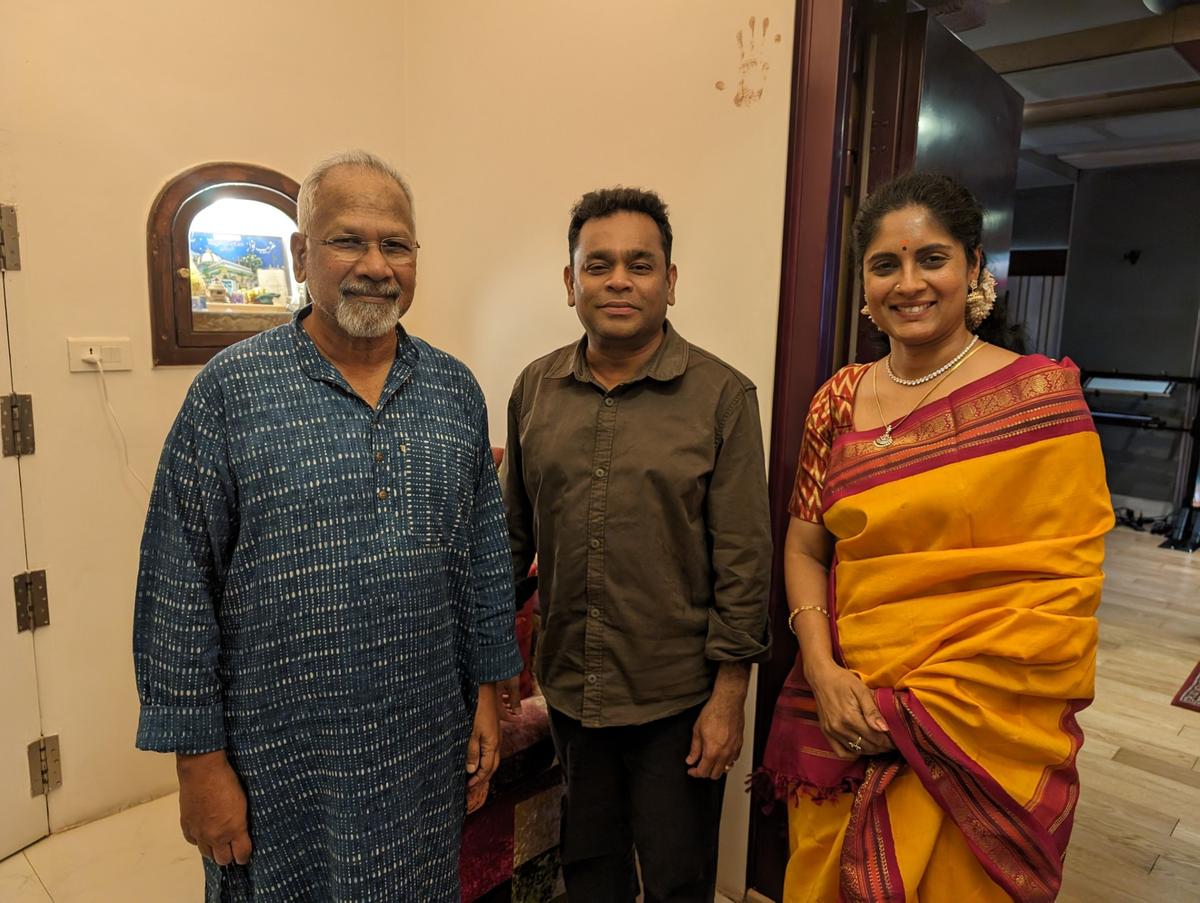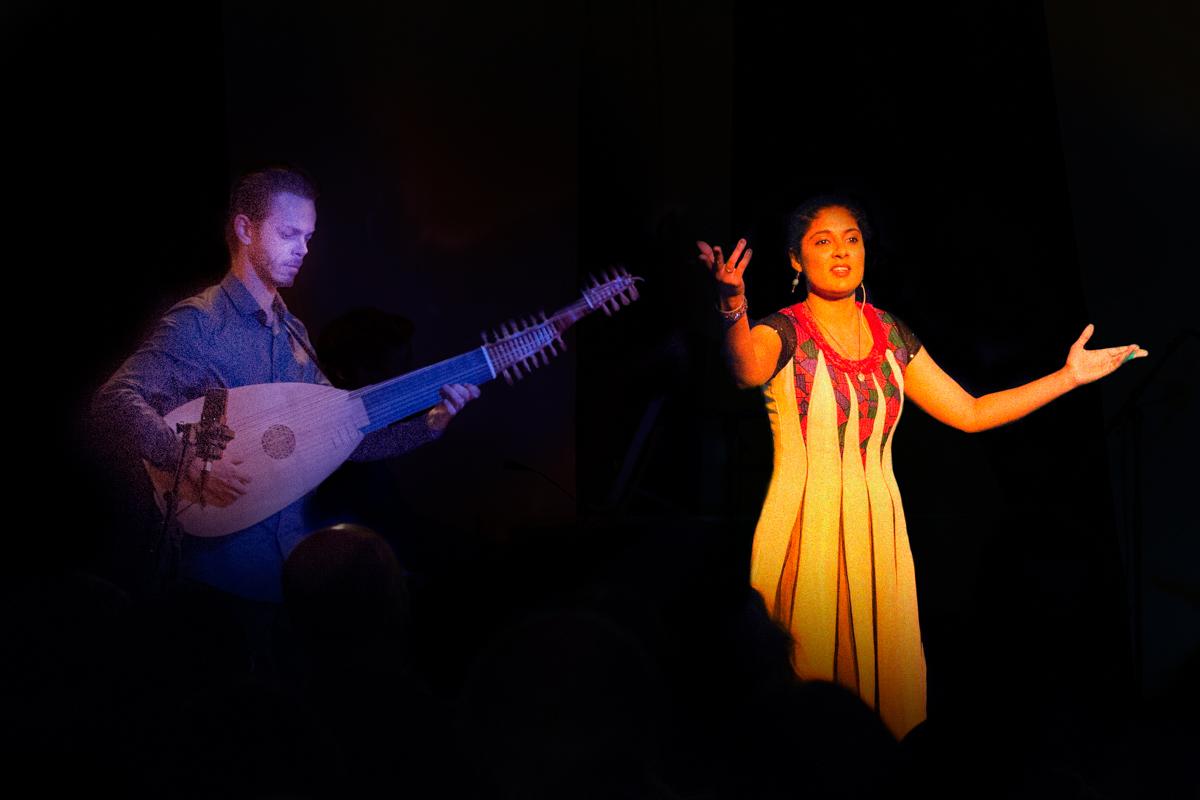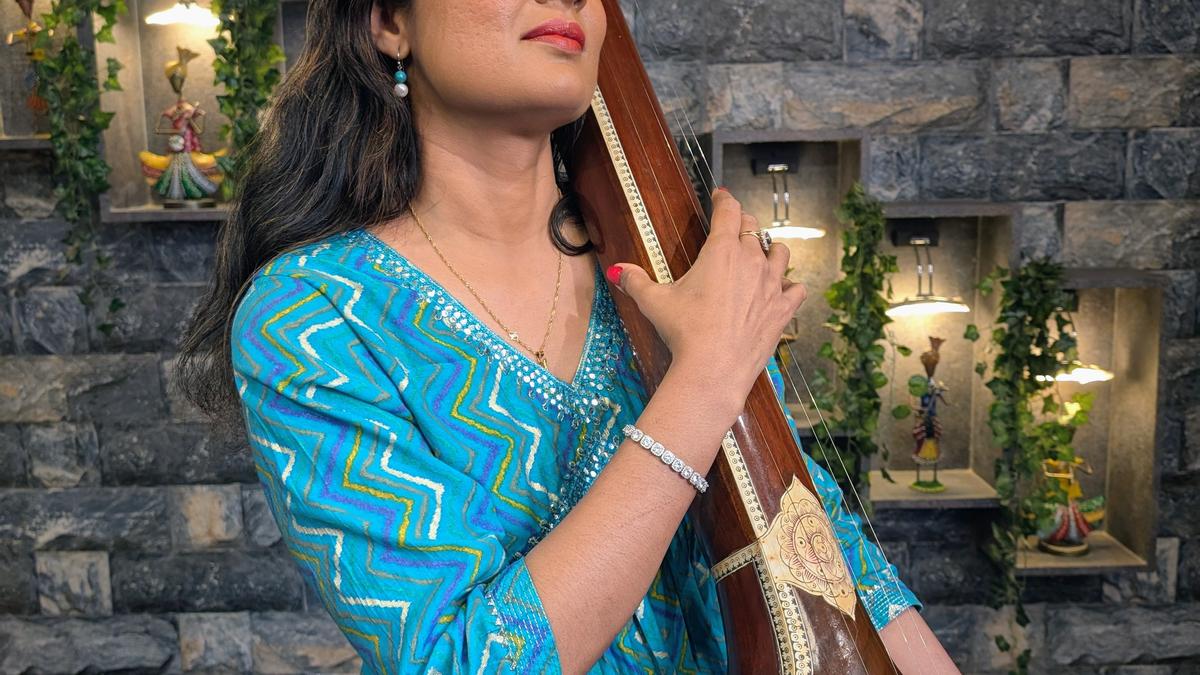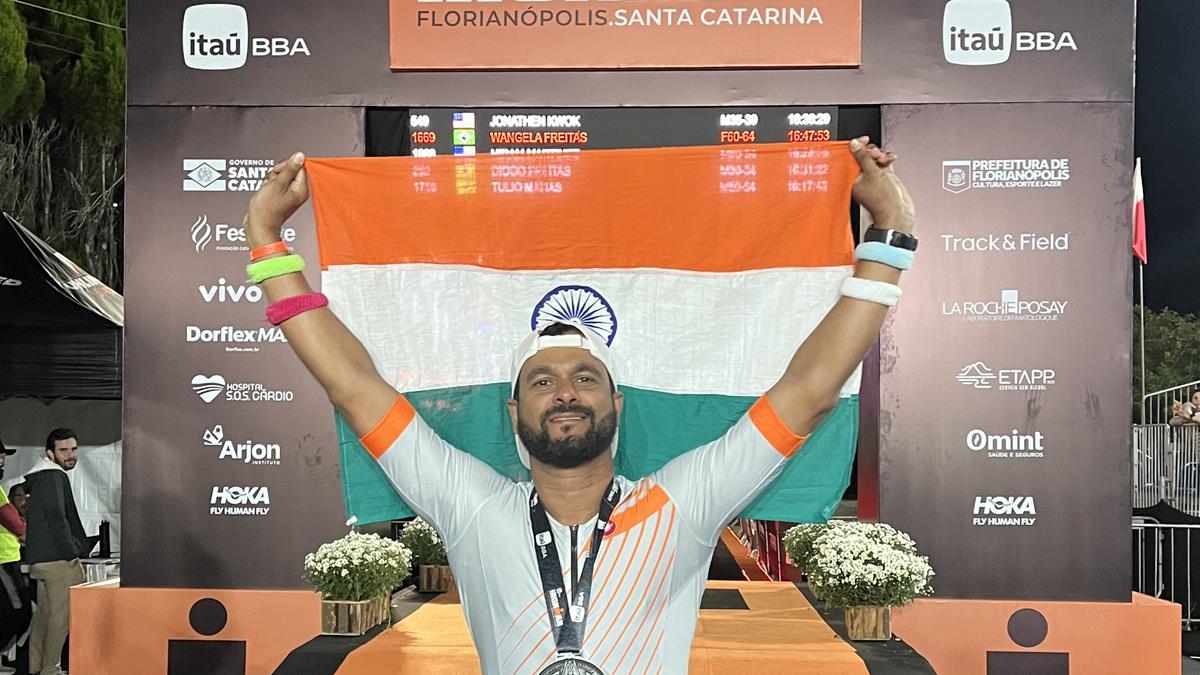Last week, when the world heard the songs of Mani Ratnam’s Thug Life at the audio launch, they found an AR Rahman album that catered to different moods all at once — among others, there was the rousing ‘Vinveli nayaka’ by Shruti Haasan, the lilting ‘Mutha mazhai’ in Chinmayi’s voice, and Charulatha Mani’s soothing-yearning-lament ‘Anju vanna poove’, which featured the tremolo technique drawn from the opera tradition.
‘Anju vanna’ also turned out to be an educative experience for the audience, many of whom wondered at the ‘special effects’ in the song. Charulatha Mani, Carnatic singer who also dabbles in films, and who holds a doctorate in ‘Hybridising Carnatic Music and Early Opera’ from Australia, spoke about how the powerful lyrics nudged her to try the tremolo in some passages and how it met the music composer’s approval.
Charulatha is a familiar face to followers of both Carnatic and film music. She’s always been this bridge between the two with her Isai Payanam series, where she makes classical music more approachable to those who don’t know it, using film music as a guide of sorts. Inversely, this also helps purists see the innate classical influence on film music, sometimes unexpectedly in pulsating numbers. She’s rendered some too — more famously, ‘Uchi mandaila’ and ‘Chillax’, both for music director Vijay Antony.

Charulatha Mani with director Mani Ratnam and composer A.R. Rahman
| Photo Credit:
Special Arrangement
“When I read Karthik Netha’s lyrics, I knew it was a lullaby, but the words ‘Kaatha vaaren’ felt like a mother’s reassurance. There was also a tinge of pain and helplessness. The lines ‘Pinju veral enge, konjum kural enge’ (Where are the tiny fingers, where is that affectionate voice), tempted me to try the tremolo, which dates back to the Early Opera period and was the top ornamentation of that time. Rahman sir said that it sounded effective, and so we used it for the poignant lines,” Charulatha says. The tremolo lends a trembling effect to the voice. “It is the ornament that connects to the soul,” adds Charulatha. “In a strange way, this showed me yet again that what we learn stays with us, and resurfaces when we least expect it to.”
And then the researcher in Charulatha takes over. “The tremolo was considered important to bring emotion back to music after the spiritual bent of the Renaissance Era. And my PhD was on the 17th Century Italian Opera, when Claudio Monteverdi composed the first opera L’Orfeo in 1607, in the city of Mantua.”
Why did someone tuned to Carnatic and film music seek the opera? Charulatha credits her husband Karthik Balasubramaniam with this. “I entered a world of music I had not even been familiar with, outside the Carnatic realm and Western pop. He introduced me to Puccini, Verdi, Wagner, coloratura singing in Bellini and Donizetti.” And then, she introduced him to the earliest opera ever, with the work of Claudio Monteverdi when she started her PhD. “That is an interesting time in music. There was a lot of cross-cultural pollination between the East and the West. Oriental sounds traversed through Venice, which was seen as a hub of multi-culturalism. They were privy to sounds we are still discovering through their scores that are heavily ornamented. When you look at a bar, a measure of time in music, they’ve gone up to the 1/64th bar. Their passaggio is similar to the sangathis and brighas. And, it’s all been written down, note to note.”

Charulatha performing Claudio Monteverdi’s opera L’Orfeo with the lute artiste at Brisbane in Australia
| Photo Credit:
Michelle Vine
When doing her PhD, Charulatha delved deeper into opera music. “My professors were experts in early opera, and I saw the commonalities with our music. I learnt Italian and, under their guidance, travelled to Mantua, where Monteverdi lived and worked. ‘La musica meets Saraswati’ was a fusion piece in my production Monteverdi Reimagined.
All this cross-cultural integration has resulted in interesting things — Charulatha published several papers from her thesis, learnt to support her voice better with diaphragmatic breathing and navigate intricate sangathis with ease.
Most importantly, she says, “it taught me to bring back the emotional connect in singing”. This helped her immensely in film singing.
These interactions also saw Charulatha go back to her roots and discover that Musiri Subramania Iyer sang the tremolo very naturally.
Interestingly, when Charulatha began her career in film music in 2007 with ‘kuthu’ songs, there was not much protest of the kind that greeted the late actress Srividya (daughter of the stalwart ML Vasanthakumari) when she sang ‘Vethala potta sokkula’ in the 1992 Karthik-starrer Amaran. “I think my audience was ready for me to make that transition. I am their ‘chella ponnu’ (fond child) and they knew I was not someone who would be satisfied walking the regular path. Sometimes, after Isai Payanam, they would request me to sing these film songs, and I’d oblige. GS Mani Sir was the pioneer who bridged classical and film music in the form of a lec-dem, and I was tempted to take it to the concert stage, because both gave me so much joy, and I wanted people to experience that joy of discovery and the knowledge that every form of music dips into a common pool. Carnatic music is usually consumed with a certain sense of reverence. The series helped democratise classical music, and made it more accessible.”
Other than singing, Charulatha has also published academic papers — there are not many practitioners who publish. “When I started, and wanted to find citations, I was primarily reading Western researchers speaking about Carnatic music from their perspective. It flummoxed me that while on a quest to decolonise music, we were still dependent on their earlier writing. As an insider, my perspective was very different, and that is something my supervisors valued. But, because I was seeing it through the lens of academic rigour, I developed objective clarity too. But, it was not an easy position to be in.”
Artistic research is a burgeoning field. And when Charulatha did her post-doctoral studies in lullabies, she received a grant to work with refugee and migrant mothers in the perinatal phase in Brisbane, Australia. “They would all sing in their language, and I got to hear so many lullabies. I published a book Sing to Connect. But, more importantly, they spoke of refugee camps where they lost kids, found it hard to even get a meal. I was with them for 11 Tuesdays, and it was probably the most enriching experience.”
She might probably add to it the Thug Life experience, because it came to her after five long years — her last was the Mahanati hit number ‘Sada nannu’. “I recorded ‘Anju vanna’ in December 2023, and instinctively knew this was special, not just because of the people involved. In just 72 hours after the song released, life changed. It has left me with — and I’m borrowing Karthik Netha’s words — puthunarchi (a feeling of being refreshed).”
Published – June 05, 2025 04:25 pm IST



